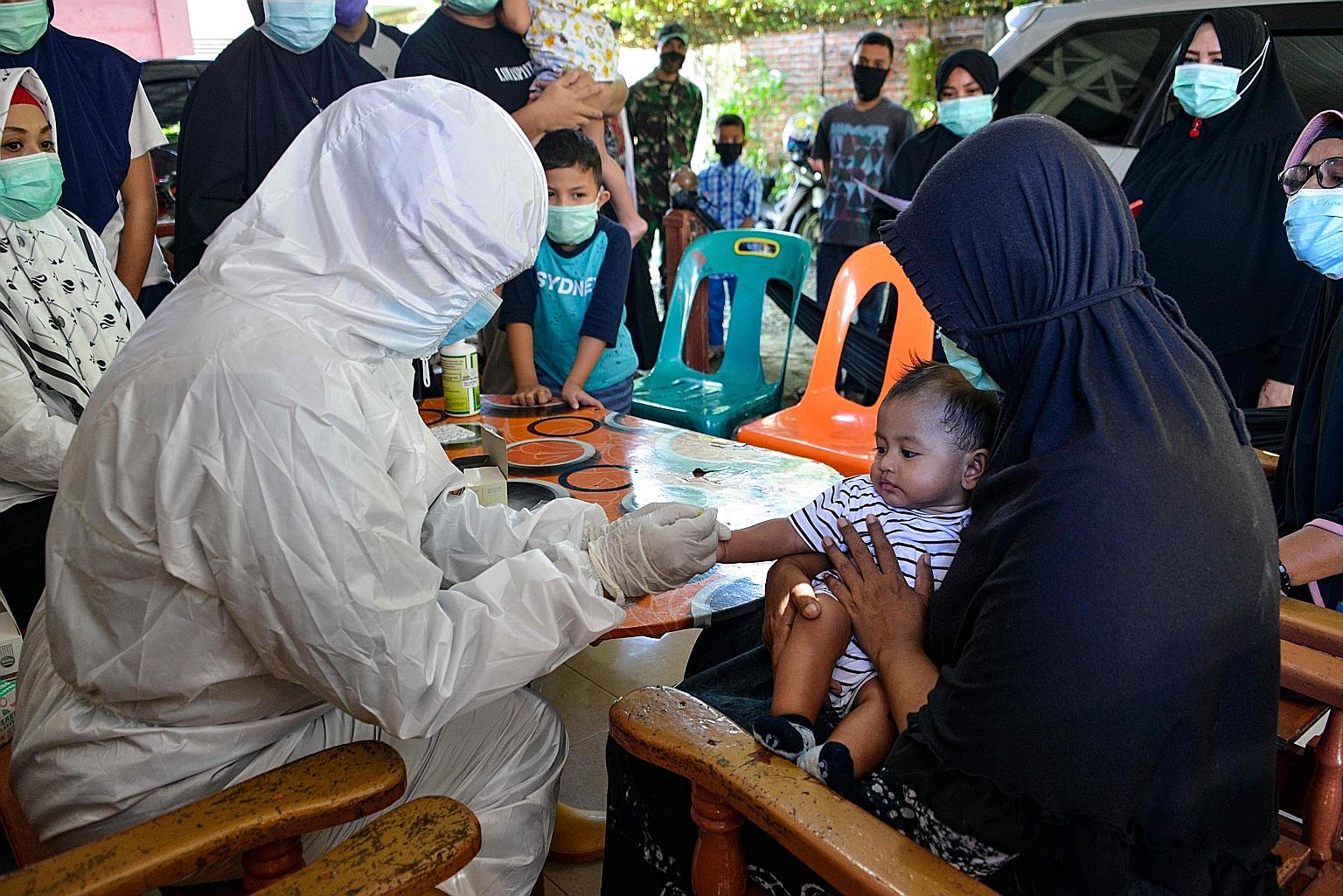COVID-19 SPECIAL
More coronavirus cases in Indonesia likely to be detected as more tests are conducted
Sign up now: Get insights on Asia's fast-moving developments

A medical worker taking a blood sample from a child in Banda Aceh, as part of mass testing for the coronavirus. Indonesia has been hampered by a shortage of testing equipment and the chemicals needed for them, as well as specialists required to conduct the tests, noted University of Indonesia epidemiologist Pandu Riono.
PHOTO: AGENCE FRANCE-PRESSE
The number of detected coronavirus infections in Indonesia could rise dramatically as more tests are conducted.
Local officials are worried as data from the country's 34 provinces showed more than 2,200 Indonesians died of Covid-19 symptoms, but they were not recorded as victims of the disease.
The proportion of people being tested is now 318 per million - an improvement over the 36 per million which made Indonesia the fourth-worst in testing rate among countries with a population of 50 million and above, according to pandemic data site Worldometer.
The country of 270 million has been hampered by a shortage of testing equipment and the chemicals needed for them, as well as specialists required to conduct the tests, noted University of Indonesia epidemiologist Pandu Riono.
Indonesia has more than 9,700 confirmed cases, with 784 people having died of Covid-19, official data shows. But there is also a backlog - more than 21,000 patients with symptoms are waiting to be tested.
Testing may reach more than 6,000 a day later this month or early next month, as equipment and more reagents used in reverse transcription polymerase chain reaction (RT-PCR) tests arrive.
But this is short of the 10,000 tests per day President Joko Widodo had targeted earlier this month.
To increase the testing capacity, Indonesia's Agency for the Assessment and Application for Technology (BPPT) has teamed up with state-owned and private companies to produce test kits locally.
BPPT chief Hammam Riza told The Straits Times that local companies will, from early next month, start making test kits for both virology tests and the antibodies-focused serology tests. BPPT is also developing mobile laboratories that can be dispatched across the country.
Meanwhile, the government has purchased more than a dozen RT-PCR-testing machines - several of which have arrived - from Swiss multinational healthcare company Roche.
And over the past week, it received enough reagent cartridges for 450,000 more PCR tests from South Korea, according to Covid-19 task force spokesman Achmad Yurianto.
But Professor Wiku Adisasmito, who heads the expert team in the task force, cautioned: "Reagents have arrived in Indonesia in a big number and have been distributed to laboratories but again, that doesn't mean the process of testing would follow the speed of the reagents arriving."
There are two reasons for this.
Indonesia has predominantly relied on specialists manually mixing reagents with biological samples taken from suspect cases, a slow process that puts the personnel handling the work at risk.
There is also a lack of clinical microbiologists. "Imagine, with the size of Indonesia, we have only 150 microbiologists spread across the country," said Prof Wiku, who described the crisis as a wake-up call.
• Additional reporting by Linda Yulisman and Jeffrey Hutton


